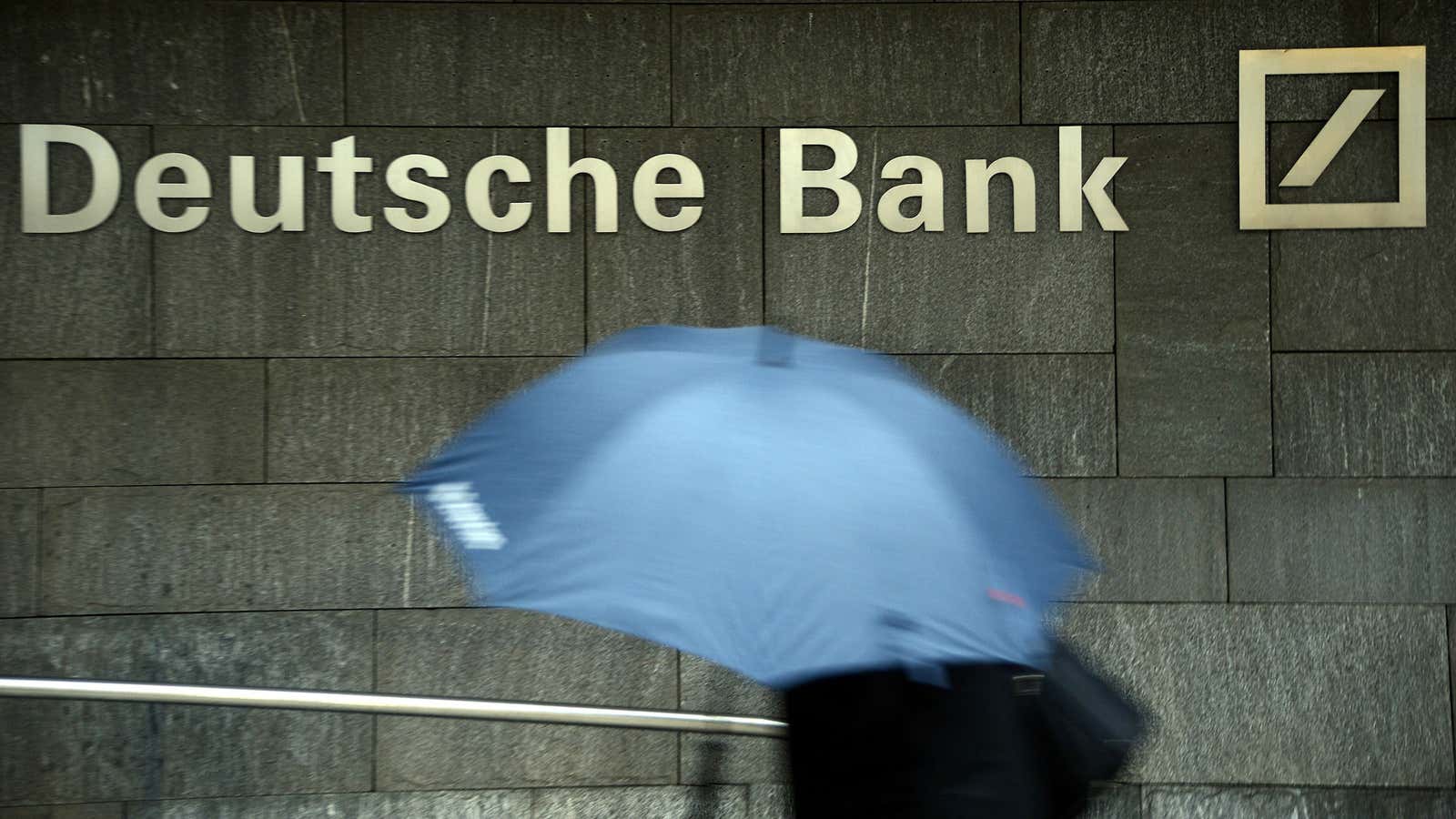Deutsche Bank reported a fourth-quarter loss of €2.2 billion ($3.5 billion)—almost eight times larger than analysts expected. In the same period last year, the bank reported profit of €147 million.
That’s a big drop. But it comes as no surprise: The bank warned last month its profits would be hit by write-downs and litigation charges. The market, therefore, took it in stride, as the bank’s share price remained steady at €37.25 in Frankfurt trading, as of 6:40 EST.
That doesn’t mean there were no surprises in today’s report, though. In its earnings announcement, Deutsche Bank, Europe’s largest by assets and believed to be among the most leveraged, revealed that it might finally be improving its capital ratio, which is what regulators use to measure a bank’s financial health.
Specifically, the bank said its core Tier 1 capital ratio was at 8% at the end of December, up from 6% at the end of 2011. Executives said the bank could reach 8.5% by the first quarter’s end, putting the bank ahead of schedule in meeting the 2015 deadline for having to disclose its leverage ratio under international bank regulations.
To be considered “well-capitalized,” a bank should have a capital ratio of 6% or more. On that basis, analysts estimate DB’s capital shortfall to be around €20 billion, making it is among the five worst capitalized banks in Europe, according to a Morgan Stanely list. Its executives have promised to cut down risk and improve the capital ratio to more than 10% by 2015.
But some say the bank’s progress isn’t going to be fast enough. Co-chief executive officer Anshu Jain is determined to improve the bank’s capital ratio “organically”—something that Dominic Elliot, a commentator for Reuters Breakingviews says is a mistake. Investors “want big universal banks with sizable exposure to capital markets to be at around 10 percent as soon as practicable,” argues Elliot.
Though the bank managed to avoid a bailout during the financial crisis, it has run into trouble lately. Allegations of tax-evasion resulted in a raid on its headquarters in Germany last month. Along with other banks, Deutsche Bank is being investigated for manipulating benchmark interest rates. In addition, the bank’s executives announced today they would meet with Canadian regulators over Deutsche Bank’s possible role in the 2007 meltdown of the country’s non-bank asset-backed commercial paper market.
